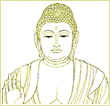It is not necessary to believe in past and future lives in order to be a Buddhist. Buddhism is not credal. One becomes Buddhist by following the guidance of the Buddha and the subsequent teachers of the tradition. Since the Buddhist scripture is so voluminous, it is not possible to even be fully acquainted with all the Buddhist teachings. (The Chinese canon is the oldest written record of the Buddhist teachings. Depending on the form of printing it is between 56,000 and 100,000 pages long.) Usually we become Buddhist by participating in a particular school of Buddhism. Most schools of Buddhism actually base themselves on less than 1% of the Buddhist scripture. If the approach of a particular school is engaging we try to take seriously the basic ideas that pertain to that approach. There are only four ideas that it is usually assumed one must not deny if one is Buddhist. Not denying the validity of an idea is not the same as believing it. The notions that are generally considered to never be denied by Buddhists are:
- The impermanence of all persons, places, objects and events.
- No soul, viz., there is no non-physical essence to our identity which survives death unchanged.
- Enlightenment alone will bring genuine freedom and lasting happiness.
- Karmic Law, viz., wholesome behavior is connected with having greater freedom and happiness in this life and in the future. Unwholesome behavior (compulsive greed, hatred and self-delusion) has an affinity with increased bondage and suffering in this life and in the future.
Certainly the notion that we will have a new life in the future is in the background of understanding karmic law. Also, knowledge of past lives is usually considered to be one of the defining characteristics of a Buddha. Even so, ideas in Buddhism are therapeutic devices: solutions to particular problems, models of thought which are acknowledged as being flawed. Thus we need not believe everything we read or hear in the sutras (scripture). It is best with ideas that appear to be very basic to the Buddha-dharma to reserve judgment if they donít click for us. Perhaps they will make more sense in the future. There are many Buddhist priests who never think about past or future lives. The notion that we have lived as individuals in the past and may do so again in the future is a model of thought which is simply not employed by many sincere Buddhists. Even so, we should probably at least reserve judgement if it doesnít nurture us. We might think, "Perhaps the meaning of future lives is metaphorical. Perhaps I am thinking too rigidly about personal identity." There is no requirement to believe in past and future lives. Even so, the real meaning of the idea may be eluding us. Reserving judgement is still consistent with saying, e.g., "I donít think about having a future life. It just isn't one of the Buddhist ideas that I use in my daily living." (Rev. Gregory Gibbs) |
